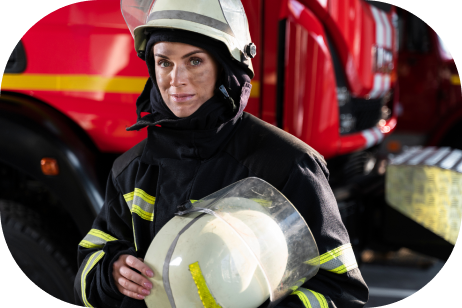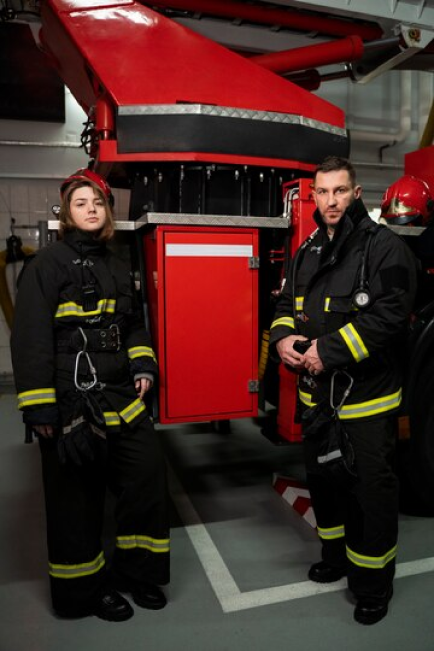Navigating Fire and Safety Course Qualifications: Requirements and Career Development
- info@safetymastery.com
- +91 7200322134


Key Qualifications and Skills Acquired Through Fire and Safety Training
Key Qualifications and Skills Acquired Through Fire and Safety Training
Fire and safety course qualifications are crucial for individuals looking to enhance their skills, knowledge, and expertise in fire prevention, emergency response, risk assessment, and safety protocols. Understanding the requirements and benefits of completing a fire and safety course is essential for those aiming to excel in safety management roles. In this comprehensive guide, we delve into the qualifications needed for a fire and safety course, as well as the advantages and pathways it creates for individuals seeking a successful career in safety management.

Key Qualifications for Fire and Safety Training:
- Educational Background: Most fire and safety courses require a minimum of a high school diploma or equivalent. Some advanced courses or certifications may necessitate a bachelor's degree in a related field such as occupational health and safety, fire science, or emergency management.
- Safety Experience: Prior experience in safety-related roles or industries can be beneficial for individuals pursuing a fire and safety course. Practical experience in fire prevention, emergency response, or safety compliance can enhance one's understanding and readiness for safety management responsibilities.
- Regulatory Knowledge: A strong understanding of safety regulations, standards, and legal requirements is essential for fire and safety professionals. Familiarity with local, national, and industry-specific safety guidelines is often a prerequisite for enrolling in a fire and safety course.
- Communication Skills: Effective communication is a critical skill for safety professionals, as they are responsible for conveying safety procedures, policies, and training to employees. Strong written and verbal communication skills are valuable qualifications for fire and safety training.
- Problem-Solving Abilities: Fire and safety professionals must possess strong problem-solving skills to identify safety hazards, assess risks, and implement solutions effectively. Critical thinking and analytical skills are essential qualifications for individuals seeking to excel in safety management roles.
Safety International Diploma
- Ofqual Regulated Qualifications London, UK
- GradIOSH/CertIOSH status from IOSH, UK
- TSP status from BCSP, USA
- Gateway to MSC in UK universities
Enhance your educational profile with an additional
one or two years of qualification.
one or two years of qualification.
Get Courses Details
Get Courses Details
Safety Diploma
- Government-Endorsed National Safety Diploma Program
- Qualify for registration at the Employment Exchange
- Attestation by the Ministry of External Affairs for those wishing to move abroad
- Eligible for membership with MIIRSM (IIRSM membership at discretion)
- Approved by the Government of India
- Enhance your educational profile with an additional one or two years of qualification
Benefits of Completing a Fire and Safety Course:
- Specialized Expertise: Completing a fire and safety course provides individuals with specialized skills and knowledge in fire prevention, emergency response, risk assessment, safety regulations, and compliance, preparing them for roles in safety management.
- Career Advancement: Certification from a fire and safety course can open doors to diverse job opportunities in safety management, fire prevention, emergency response, and regulatory compliance, offering a pathway for professional growth and development.
- Industry Recognition: Accreditation from a fire and safety course demonstrates expertise and commitment to upholding safety standards and best practices, earning recognition from employers, regulatory bodies, and industry professionals.
- Workplace Safety Advocacy: Fire and safety professionals play a crucial role in promoting safety awareness, enforcing safety protocols, and ensuring a safe working environment for employees, contributing to reduced accidents and improved well-being.
- Regulatory Compliance: Knowledge gained from a fire and safety course equips individuals to ensure compliance with safety regulations, standards, and legal requirements, safeguarding organizations from penalties and liabilities.

Understanding the qualifications needed for a fire and safety course is essential for individuals looking to pursue a career in safety management. By meeting the educational, experience, and skill requirements for fire and safety training, individuals can acquire the necessary expertise to excel in ensuring workplace safety, risk management, and regulatory compliance. Remember: fire and safety course qualifications are not just prerequisites—they are stepping stones to a rewarding and impactful career in safety management.
